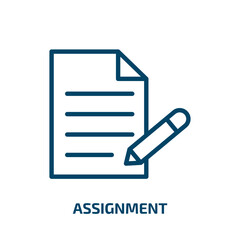Reading effectively for exams is a crucial skill for students at all levels of education. Whether you’re preparing for a standardized test, a final exam, or any other academic assessment, the ability to absorb and retain information from textbooks, articles, and other study materials is essential. Effective reading techniques can help you maximize your study time, improve comprehension, and ultimately achieve better results on your exams. In this guide, we’ll explore some strategies and tips to help you read effectively for your exams.
Understanding the Material:
- Preview the Material: Before diving into a text, take a few minutes to preview it. Skim through headings, subheadings, and any bold or italicized text to get an overview of the content.
- Identify Key Concepts: Pay attention to key terms, definitions, and main ideas as you read. Highlight or underline important information to help you remember it later.
- Make Connections: Try to relate new information to what you already know. Making connections between concepts can help deepen your understanding and improve retention.
Active Reading Techniques:
- Engage with the Text: Stay actively involved while reading by asking questions, making predictions, and summarizing key points. This helps keep your mind focused and promotes better comprehension.
- Take Notes: Write down key ideas, summaries, and any questions or thoughts that arise as you read. Summarizing information in your own words can reinforce understanding and aid in memory recall.
- Use Annotation: Mark up the text with annotations such as highlighting, underlining, or making marginal notes. This can help you identify important information and make it easier to review later.
Time Management:
- Set Goals: Break your study sessions into manageable chunks and set specific goals for each session. This can help you stay focused and make better use of your study time.
- Use Timed Sessions: Consider using techniques like the Pomodoro Technique, where you work for a set period (e.g., 25 minutes) and then take a short break. This can help improve focus and productivity.
Improving Comprehension:
- Read Actively: Engage with the material by asking questions, making predictions, and summarizing key points as you read. This helps keep your mind focused and promotes better comprehension.
- Monitor Understanding: Periodically pause while reading to check your understanding of the material. If something doesn’t make sense, go back and review or seek clarification from your teacher or classmates.
Enhancing Retention:
- Review Regularly: Schedule regular review sessions to reinforce your understanding and retention of the material. Spacing out your study sessions over time can help improve long-term memory.
- Use Mnemonics: Mnemonic devices, such as acronyms or visual imagery, can help you remember complex information more easily. Create mnemonic devices to help you recall key concepts or lists.
Practice and Application:
- Practice Retrieval: Test yourself on the material by reciting key concepts or answering questions without looking at your notes. Practice retrieving information from memory strengthens your recall abilities.
- Apply What You’ve Learned: Try to apply the information you’ve learned to real-world scenarios or practice problems. This can help reinforce your understanding and highlight areas where you may need further review.
Final Tips:
- Stay Organized: Keep your study materials, notes, and resources well-organized to minimize distractions and maximize efficiency.
- Take Breaks: Don’t forget to take regular breaks during your study sessions to rest and recharge. Taking breaks can help prevent burnout and improve overall productivity.
- Seek Help When Needed: If you’re struggling to understand a concept or need clarification, don’t hesitate to reach out to your teacher, classmates, or tutors for assistance.
In conclusion, effective reading for exams involves more than just passively absorbing information. By actively engaging with the material, using active reading techniques, managing your time effectively, and practicing retrieval and application, you can improve comprehension, retention, and ultimately perform better on your exams. Remember to stay organized, take breaks when needed, and seek help when necessary. With dedication and practice, you can develop the skills needed to read effectively for your exams and achieve academic success.

